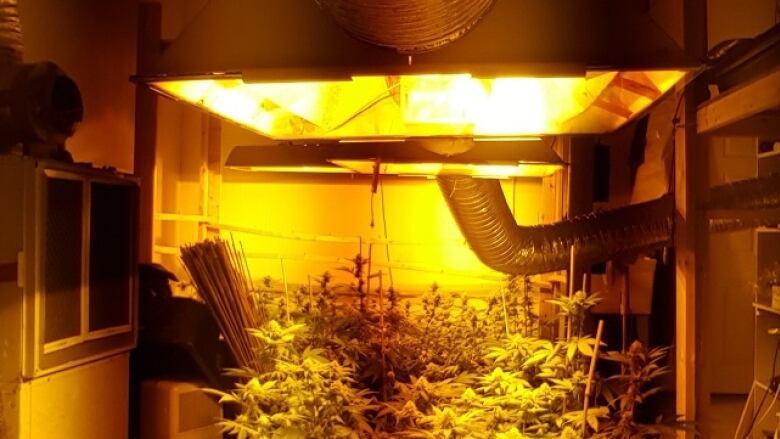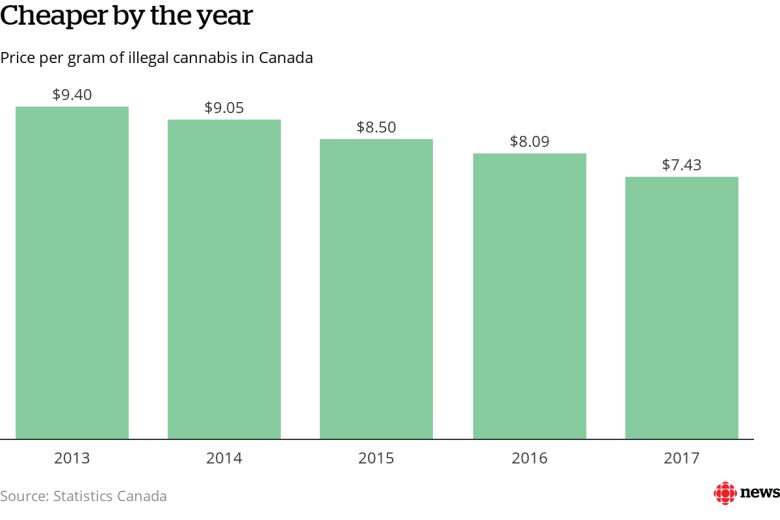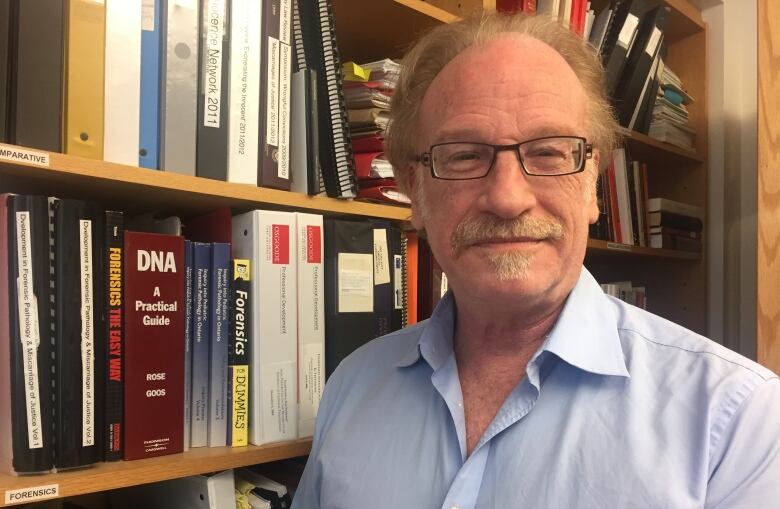Quebec's underground cannabis market isn't all 'bikers and Mafia,' grower says
'Luke,' who maintains a grow-op in Montreal, says there's a 'mom and pop' element to the scene

Inside a loft not far from downtown Montreal, silver ventilation tubes snake across the ceiling of a long, narrow room where blooming cannabis plants reach forpowerful lights.
"Luke," an experienced grower, has a valid medical licence to treat an existing condition. But he also sells illegally to a half-dozen clients, many of whom he says rely on the drug to treatconditions of their own.
He estimates there are more than 100 small operations like his own, hidden in plain sight in businesses and homes around the city.
"There's a big conception that it's all bikers and Mafia," Luke said of the city's illegal cannabis market.
"There's a 'mom and pop' element to it, as well."
CBC News has agreed not to identify Luke by his real name because he fears legal repercussions.
Although cannabis will be legal and available for purchase across Canada as of Wednesday, Luke like many who grow and sell cannabis outside the legal framework hasno plans to stop growing and selling his own product.
Luke is passionateabout the plant's medicinal applications and believes the quality of his own offerings far exceeds that of what will be sold throughthe province's government-runSocitqubcoisedu cannabis (SQDC).
He wants to expand his reach and hopes, ultimately, to be able to do that legally.
"We're not trying to get rich," he says.
"I think a lot of people think they have been let down by the established medical system."
As it stands now, however, Lukewill remain a black-market supplier. The federal legislation, he says, is "heavy handed and dismissive of the community that brought cannabis to the place it is today."
Will legalization stamp out black market?
Observers are watching closely to see how legalization affects the province's well-established black market, from street dealers peddling dime bags outside Metro stations to the high-end growers who deliver a range of strains directly to their customers' door.
Under legalization, some activities that fall outside the legal framework will remain subject to criminal or penal offences, such as production, possession for the purpose of trafficking, selling on the black market, as well as importing and exporting cannabis.
Prime Minister Justin Trudeau has argued againstthe incoming Quebec government's plan to raise the legal age for smoking cannabis from 18 to 21, suggesting organized crime will step in to fill a void.
It's difficult to say, however, to what extent organized crime is behind the production and sale of illegal marijuana.
As recently as last year, Quebec was the second-largest producer of cannabis in the country, after British Columbia.
Just how big is that? Statistics Canadaestimated that, in 2014, Quebec'scannabis industry was slightly larger than Quebec'sforestry and logging industry.
The Hells Angels, however, has moved onto harder drugs, such as cocaine and opiates, cedingthe production and export of cannabis to Asian street gangs, police sources told Radio-Canada.
At the same time, the emergence of hydroponics and other technologieshasmade it easier for regular folksto grow cannabis indoors on a smaller scale.
Philippe Paul, a retired Montreal police officer, is skeptical that legalization and what advocates call the "democratization" of cannabis production will stamp out the presence of organized crime altogether.
"Organized crime will always find a way to make money with it," he said.
"It's very simple:they can play with prices. They can play with quality. They can play with ease of distribution."

Opportunity for 'micro growers'
Lawyer Alan Young, a veteran marijuana legalization proponentand professor emeritus at Osgoode Hall Law School, believes that the legal framework is "overly restrictive" but will likely "evolve and change."
"It will be an up-and-down battle for years between what the government calls the black market and the regulated market," said Young, who has represented a number of cannabis growers.

Young said he's encouraged that Ottawa recently announced a plan to open up production to "micro growers."
In the meantime, the people who have been using cannabis for a decade or more are unlikely to end their relationship with their dealer any time soon.
He said the price and quality of the government's products will need to improve substantially for the government-run suppliersto compete with the black market.
However,the Quebec provincial police is not throwing in the towel and accepting a continued role for black market pot. In a recent news release, the SretduQubec said it would continue "its fight against the illegal production and sale of cannabis."
Last month, it announced the formation of a new unitto fight illegal cannabis, modelled on programs that already exist to combat alcohol smuggling and illegal tobacco products.
The unit will include 54 new members from provincial and municipal forces across the province who will combat illegal production of cannabis including online smuggling.
The SQ offered a glimpse of itsnew approach last week, when it raided eight unauthorized cannabisdispensaries around the province.
Do you havequestions about how cannabis legislation is going to work in Quebec? The CBC's Benjamin Shingler has the answers. Join us live on Wednesday, Oct. 17 at 12 p.m. on the CBC Montreal Facebook page for our Q&A on cannabis.












_(720p).jpg)


 OFFICIAL HD MUSIC VIDEO.jpg)
.jpg)



























































































